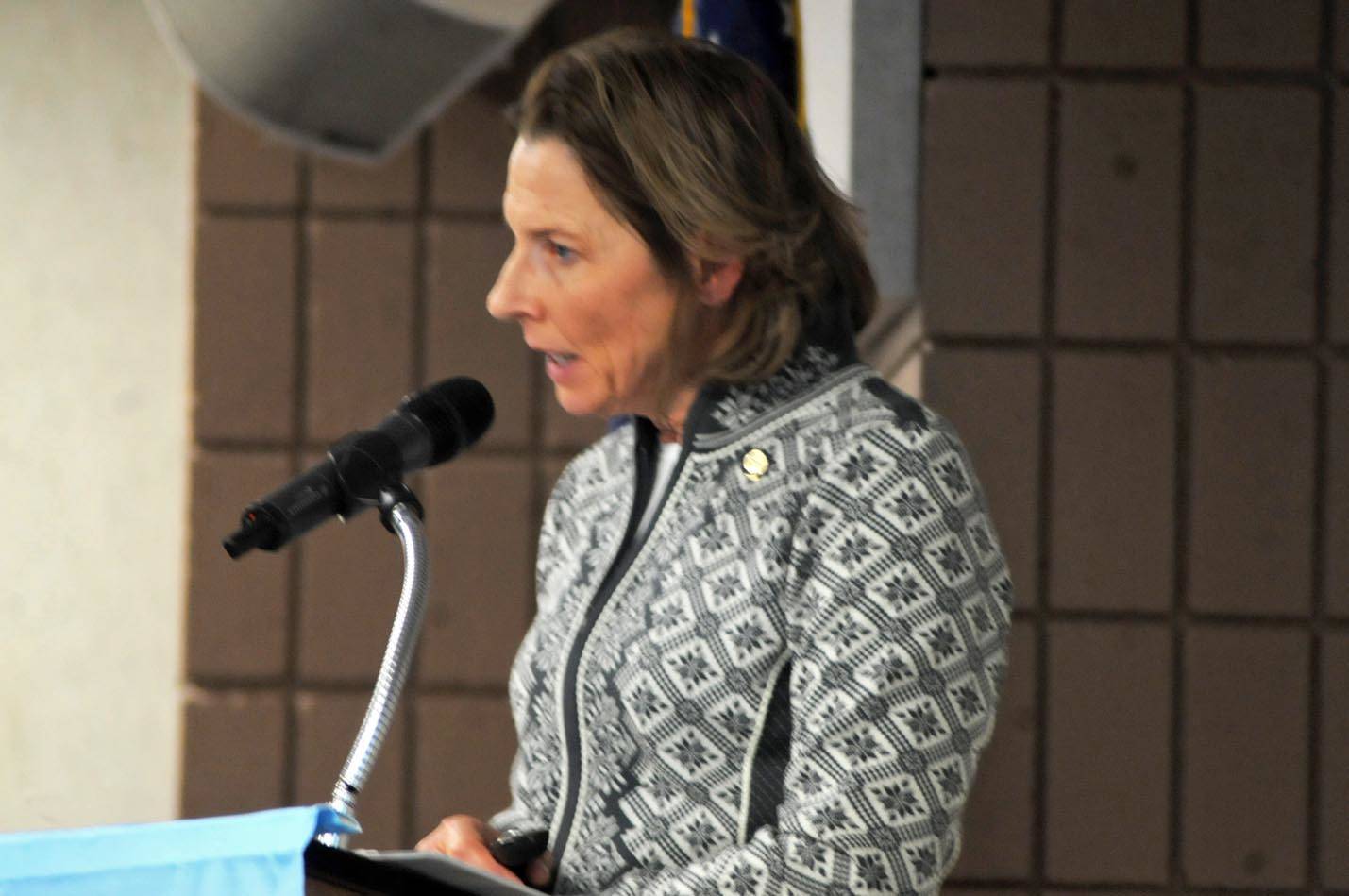A bill before the Legislature in the upcoming session would overhaul workers’ compensation to lessen the overall cost of the program in the state.
Senate Bill 112, sponsored by Sen. Cathy Giessel (R-Anchorage), spells out in about 50 pages a number of changes to Alaska’s workers’ compensation system. Since 2004, Alaska has been among the top three states in the U.S. for workers’ compensation spending, according to the 2013 report from the Alaska Health Care Commission. In 2016, that fell to third place, Giessel said in a speech to the joint Kenai and Soldotna chambers of commerce Wednesday.
“We’ve made some progress, and I’m very pleased about that,” she said. “There’s more room to keep going.”
Workers’ compensation insurance is paid for by employers and regulated by the state. However, rising health care costs, among other factors, have pushed up total spending and thus premiums for employers over the years, despite fewer work accidents overall. On-the-job fatalities in Alaska hit a record low in 2015, falling 85 percent since 1992, according to the Alaska Department of Labor and Workforce Development’s November 2017 Trends report.
Despite safer workplaces, the overall cost of workers’ compensation has continued to increase, Giessel said.
“We have much safer workplaces these days because employers … are working so hard to have safe work sites,” she said. “And yet at the same time, benefits have been growing, the costs have been growing. So we have some imbalance as well. It is actually cheaper to fly employees Outside for care because of unsustainable costs.”
SB 112 targets a couple of the main problems, she said. A major one is capping attorney’s fees in workers’ compensation cases. Currently, there’s no ceiling in statute on how much attorneys can claim in fees upon the conclusion of a compensation settlement, she said. The bill would set a cap of 25 percent of the total settlement for attorney fees, something Giessel said she expected attorneys to oppose.
Legally, the bill would also shift the hearings for workers’ compensation cases to the Alaska Department of Law’s Office of Administrative Hearings to be heard by administrative law judges. Administrative law judges are required to pass the state bar exam and are well-regarded, Giessel said. Currently, hearings are held before the Workers Compensation Appeals Commission, which is within the Department of Labor and Workforce Development.
The bill would also have implications for the medical side. Doctors would be required to inform employers if they prescribe opioids to the employee as part of a treatment plan, Giessel said.
“There are a couple of reasons for this,” she said. “Number one, if someone is continuing to work, perhaps in a reduced job capacity, and is on an opioid, that employer should know. It could represent a hazard in the workplace or to the employee themselves. But the employer is also paying for that pill. It requires that the prescriber justify the use of that opioid to the employer. It requires that the clinician review the prescription drug monitoring program before prescribing opioids and requires that be done every two months.”
Employees would also be required to sign a contract for drug screening when prescribed opioids to prove they are taking them rather than selling them on the street and to show they are not on other drugs.
The bill also sets limits on temporary total disability benefits at 2 years, with possible extensions if the employee can justify it, and cuts off partial disability benefits if the employee goes back to work with the same employer at the same or greater pay. Finally, the bill switches the job retraining benefit from a lump payment to the employee to a voucher system. Employees who provide medical evidence that they need to be retrained after an injury can get a voucher for further education, which is paid either directly to the program or is reimbursable if the employee provides a receipt, Giessel said.
“The goal is to reach a balance benefiting the work and benefiting the employer,” she said. “My goal is to get people back to work, not to put them into a perpetual treatment merry-go-round, but actually with best practices get them back to work. And if we can get employers … not to spend as much money on work comp liability insurance, they’re going to be able to just that much more with their companies.”
The bill was crafted in large part with the influence of the Alaska Chamber of Commerce, the statewide business advocacy organization. It’s one of the organization’s top two state legislative priorities for 2018, said Alaska Chamber Communications Director Brandy Dixon.
“It’s been a fairly longstanding priority for the chamber,” she said.
Giessel said she wasn’t sure how the Legislature would fall on the bill. While some organizations have come forward to support it, she said she knew the Department of Labor and Workforce Development had some issues with it in its present form. The health care industry and attorneys would likely come out against it, she said. Based on the feedback Giessel’s staff has gotten so far, they’re removing one section redundant to federal law and tweaking some other sections.
The overall crushing cost of health care in the state is still a driving force that needs to be addressed, she said. Alaska has the highest costs of care in the country, leading many insurers to fly patients out of state for care and driving up the costs of insurance premiums both for individuals and employers. Giessel said she plans to bring forward a bill addressing the overall cost of health care as well.
“The cost of health care is detrimental to all Alaskans — businesses, employees, families,” she said. “… I’m optimistic. I’m up for the fight.”
Reach Elizabeth Earl at elizabeth.earl@peninsulaclarion.com.

